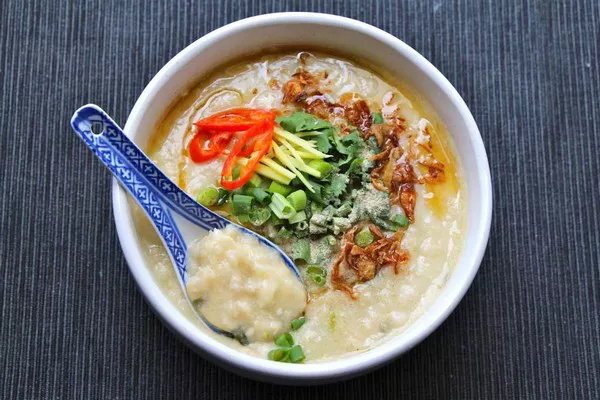Chemotherapy is a rigorous and demanding treatment that can take a toll on the body. Patients undergoing chemotherapy often experience a range of side effects, including nausea, fatigue, and changes in appetite. Proper nutrition plays a crucial role in supporting the body during this challenging time, helping to maintain strength, manage symptoms, and improve overall well-being. In this comprehensive guide, we will explore the best foods to eat while on chemotherapy, offering practical advice and evidence-based insights to assist patients in making informed dietary choices.
Prioritize Protein-Rich Foods
Protein is a crucial nutrient during chemotherapy, as it plays a fundamental role in repairing tissues, maintaining muscle mass, and supporting the immune system. Including high-quality sources of protein in the diet is essential for patients undergoing treatment. Opt for lean protein options such as:
Poultry: Skinless chicken and turkey provide lean protein without excessive fat.
Fish: Fatty fish like salmon and trout are rich in omega-3 fatty acids, which have anti-inflammatory properties.
Eggs: A versatile and easily digestible protein source, eggs are packed with essential amino acids.
Legumes: Beans, lentils, and chickpeas are excellent plant-based protein options.
See Also: 10 Protein-Rich Foods That Surpass an Egg
Embrace Nutrient-Dense Fruits and Vegetables
Fruits and vegetables are packed with vitamins, minerals, and antioxidants that support overall health and contribute to the body’s resilience during chemotherapy. However, certain challenges, such as taste alterations or difficulty swallowing, may arise. To overcome these issues, consider the following tips:
Opt for bland fruits and vegetables, such as bananas, apples, and carrots, which may be better tolerated.
Experiment with different cooking methods, such as steaming or pureeing, to make them more palatable.
Consume small, frequent meals to ensure a steady intake of nutrients throughout the day.
Stay Hydrated
Maintaining proper hydration is crucial during chemotherapy, as it helps alleviate common side effects such as nausea, constipation, and fatigue. However, some patients may struggle with water intake due to taste changes or mouth sores. To address this, try the following strategies:
Infuse water with natural flavors using ingredients like mint, cucumber, or citrus fruits.
Consume hydrating foods, such as water-rich fruits (watermelon, oranges) and vegetables (cucumbers, celery).
Sip fluids throughout the day in small amounts, rather than trying to consume large volumes at once.
Include Whole Grains for Sustained Energy
Whole grains provide a steady source of energy and are a valuable component of a balanced chemotherapy diet. They contain fiber, vitamins, and minerals that contribute to overall well-being. Some options to consider include:
Quinoa: A versatile grain that is high in protein and contains all essential amino acids.
Brown rice: A nutritious alternative to white rice, providing fiber and important nutrients.
Oats: A fiber-rich option that can be easily incorporated into breakfast or snacks.
Healthy Fats for Nutrient Absorption
Incorporating healthy fats into the diet is essential for nutrient absorption and can contribute to overall energy levels. Choose sources of monounsaturated and polyunsaturated fats, such as:
Avocado: Rich in monounsaturated fats and a good source of vitamins and minerals.
Nuts and seeds: Almonds, walnuts, flaxseeds, and chia seeds provide essential fatty acids.
Olive oil: An excellent source of monounsaturated fats that can be used in cooking or as a salad dressing.
See Also: 7 Anti-Inflammatory Fats You Should Eat, According to a Dietitian
Manage Nausea with Ginger and Peppermint
Nausea is a common side effect of chemotherapy, and certain foods may help alleviate this symptom. Ginger and peppermint have been studied for their anti-nausea properties and can be incorporated into the diet in various forms:
Ginger tea: Sipping on ginger tea can be soothing and may help reduce nausea.
Fresh ginger: Grate or slice fresh ginger to add to soups, stir-fries, or smoothies.
Peppermint: Peppermint tea or peppermint-infused water can be refreshing and may aid digestion.
Consider Small, Frequent Meals
Eating smaller, more frequent meals can help manage appetite fluctuations and prevent feelings of fullness or discomfort. This approach ensures a steady intake of nutrients throughout the day and may be more manageable for individuals experiencing nausea or changes in taste. Additionally, it can help maintain energy levels and prevent excessive weight loss.
Address Specific Dietary Concerns
Individuals undergoing chemotherapy may have specific dietary concerns based on their medical history, treatment plan, and personal preferences. It is advisable to consult with a registered dietitian or healthcare provider to address these concerns and create a personalized nutrition plan. Some considerations may include:
Nutrient supplementation: In some cases, supplements may be recommended to ensure that the body receives essential vitamins and minerals.
Food safety: Chemotherapy can weaken the immune system, making individuals more susceptible to foodborne illnesses. It’s crucial to practice proper food hygiene and avoid raw or undercooked foods.
Conclusion
Navigating the dietary challenges of chemotherapy requires a thoughtful and individualized approach. By prioritizing nutrient-dense foods, staying hydrated, and addressing specific concerns, patients can support their overall well-being and enhance their ability to tolerate and recover from treatment. Remember that consulting with healthcare professionals, including oncologists and registered dietitians, is crucial in developing a personalized nutrition plan that meets individual needs and promotes optimal health during chemotherapy.

